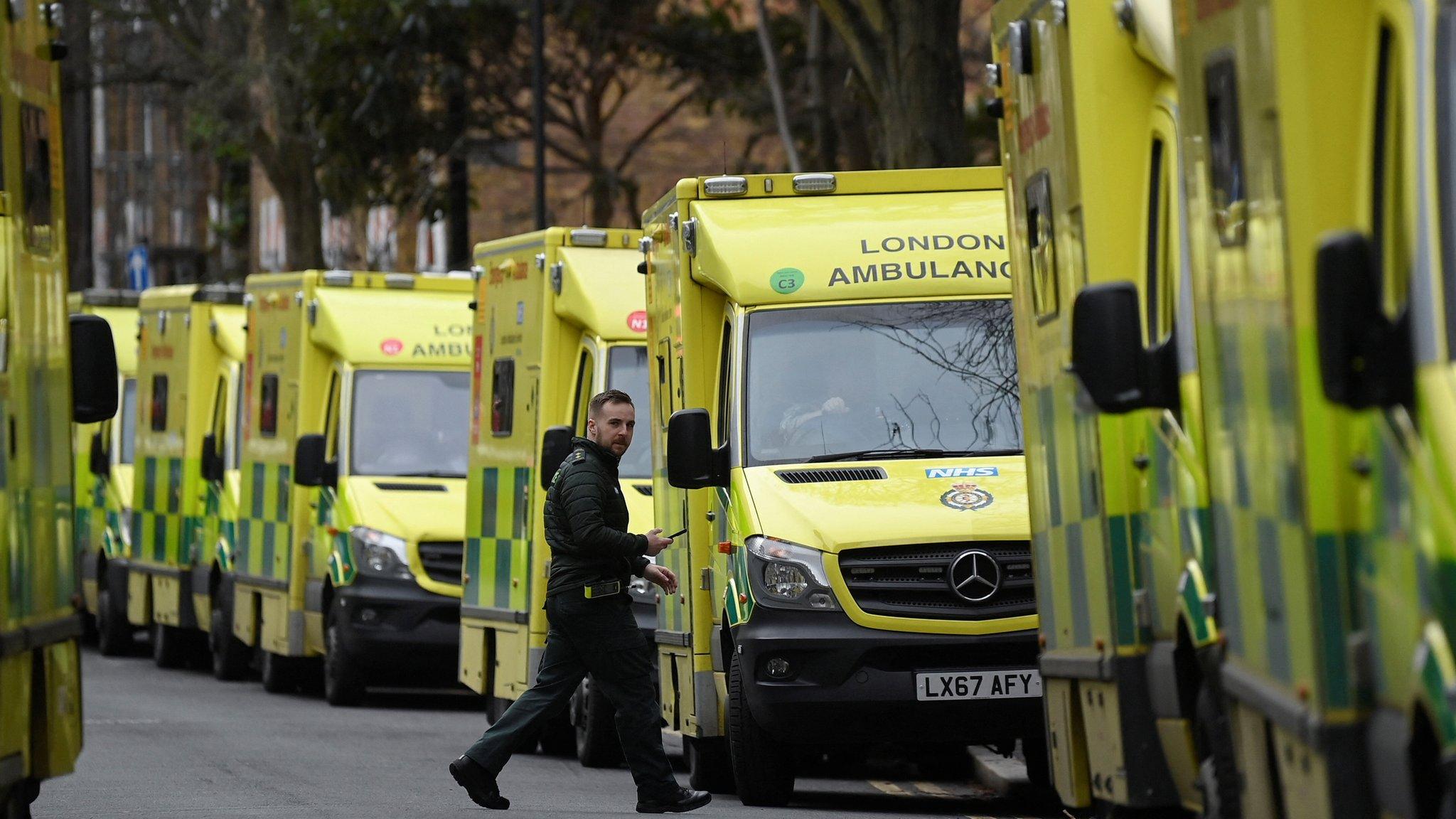Lack of NHS funding 'heartbreaking', says striking paramedic
- Published
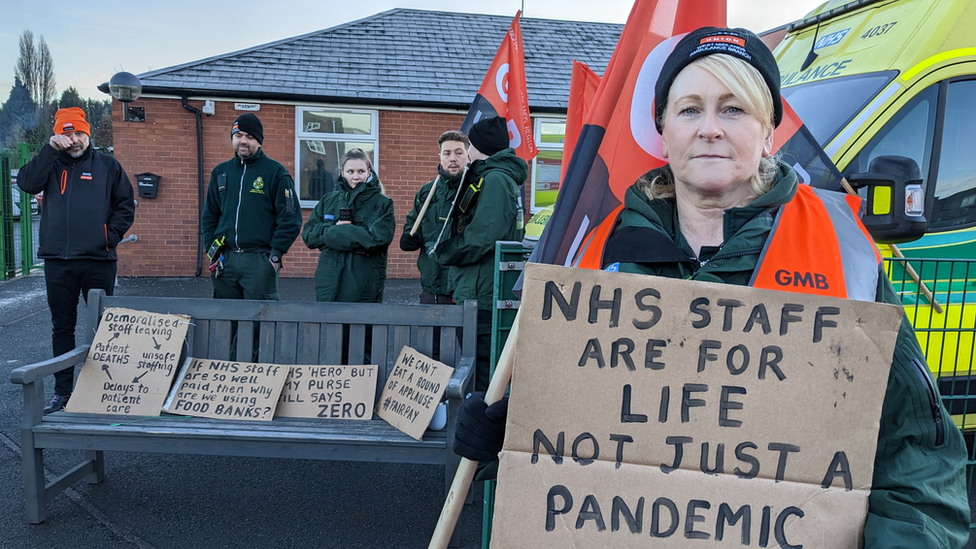
Jacqueline Murphy said she was striking because of concerns about NHS funding
An ambulance paramedic has said it is "heartbreaking" to see the delays affecting the NHS.
Jacqueline Murphy, who has worked for West Midlands Ambulance Service for 23 years, is one of several thousand ambulance workers in England and Wales taking part in strikes.
She said the NHS was "in a terrible state, due to lack of funding".
"We've had no choice now, we have to make known our concerns about the NHS," she added.
Ms Murphy was on a picket line in Telford, but said she and her colleagues were still responding to emergency calls.
She said it was "devastating" to see patients forced to wait for long periods of time in ambulances because of delays at hospitals without free beds.
"I tell them the truth, this is due to lack of funding for the NHS," she said.
Ms Murphy said she was used to seeing busy times over the winter, but "nothing like this" and she believed the NHS had not recovered since Covid-19.
"I think everyone thought once the pandemic was over we would get back to normal, people would be seen, they'd get their treatments and that's not happening and we are striking because of that," she said.
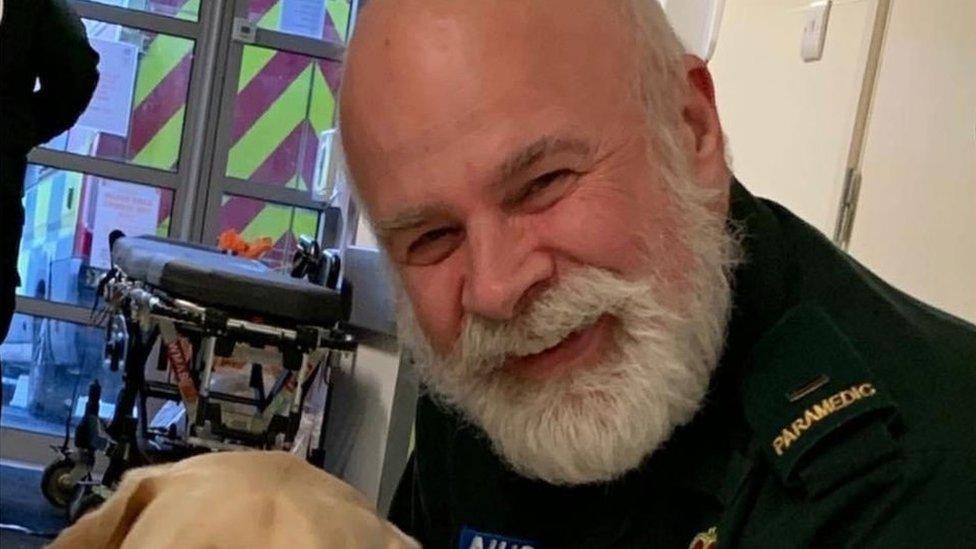
Mark Smith says ambulance staff are frustrated they are unable to adequately help patients
Fellow West Midlands Ambulance Service paramedic Mark Smith, from Hereford, said the NHS had been ignored for too long.
He served as a paramedic with the RAF in Iraq during both Gulf Wars, and said the dispute was not just about pay but overall funding for the NHS.
He said his job had always been hard and stressful, dealing with very sick patients, but it had become harder.
'Nothing you can do'
"Now we will rush to a patient on blue lights and sirens. We might be in Hereford, they might be in Kington or even Ludlow and then we rush them to the hospital where we will then sit outside and that can go on for a long period of time," he said.
"The problem then is we've got them to the hospital and there are no places in hospital for this individual... this is becoming a daily occurrence... and there is literally nothing you can do.
"They look at you with their eyes, pleadingly - you're just so frustrated. It's heartbreaking. This is not what I signed up for.
"We've been under-funded and we've had below-inflation pay rises for the last 12 years, yet that's not true of politicians."
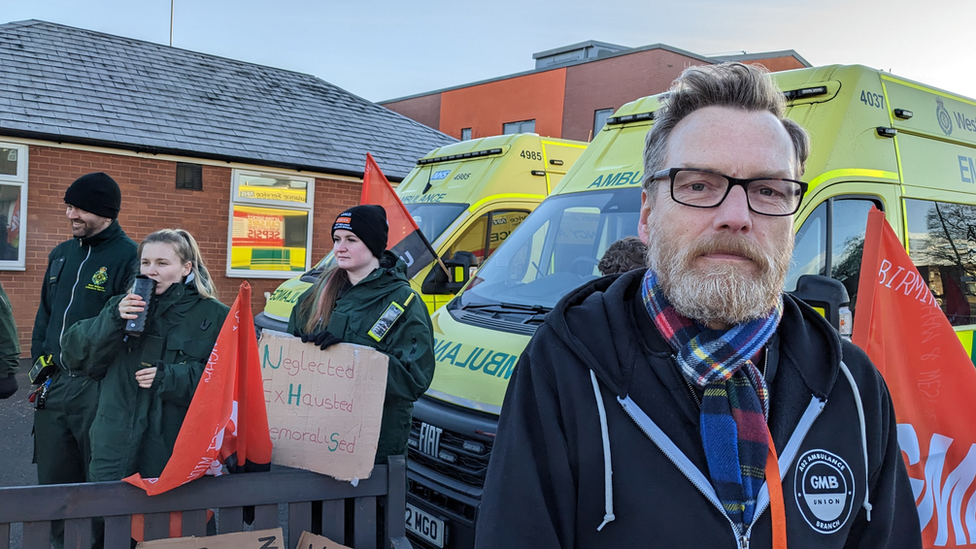
Paramedic Simon Day said he believes the public "fully understand" the ambulance workers' stance
Simon Day, a paramedic who lives near Telford, said the wages "stagnation" and underfunding of the NHS "as a whole" was the root cause of pressures causing high numbers of workers to leave.
"It's completely demoralising," Mr Day, who is branch secretary for the GMB union, said.
Mr Day, 56, spoke to the BBC at the end of a 12-hour shift in which he had spent seven-and-a-half hours looking after one patient unable to get a bed at a hospital.
"It's just not what we were trained to do," he said.
"Also we will be hearing calls on the radio about category one responses so we have to take on board the guilt of that as well."
Mr Day believes the public understand workers are striking, not just about pay, but how the situation impacts care.
"I think the public fully understand that ambulance workers and NHS workers want to provide, not a minimum standard of care but the best stand of care they can," he said.
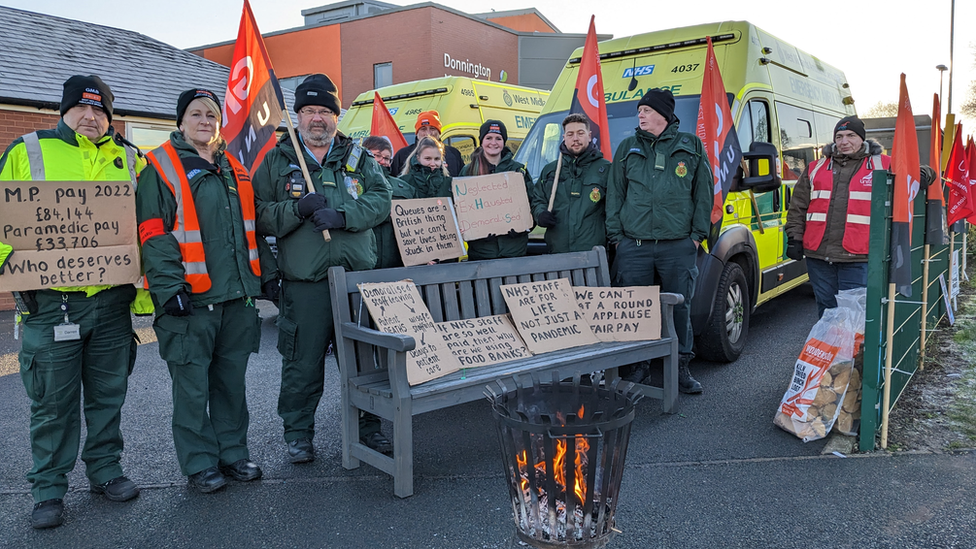
Paramedics said they were striking to get better funding for the NHS
Monday marks the NHS' biggest day of strikes this winter with ambulance staff in the GMB and Unite unions involved, as well as Royal College of Nursing (RCN) members in England.
The ambulance strike affects non-life threatening calls only and people are advised to continue to dial 999 in an emergency.
Unions want above-inflation pay rises, but in the case of ambulance workers and physiotherapists have not specified a figure.
The RCN is calling for a 19% pay rise.
The government has said the demands are unaffordable, and pay rises were decided by independent pay review bodies.
While the NHS budget has traditionally risen by an average of 4% above inflation each year, since 2010, the average annual rate of increase has been half that.
The government has pointed to extra funding for the NHS and social care, including up to £8bn announced in the Autumn Statement.
Further strikes are planned by ambulance workers on 17 February and next month.

Follow BBC West Midlands on Facebook, external, Twitter, external and Instagram, external. Send your story ideas to: newsonline.westmidlands@bbc.co.uk
Related topics
- Published31 January 2023
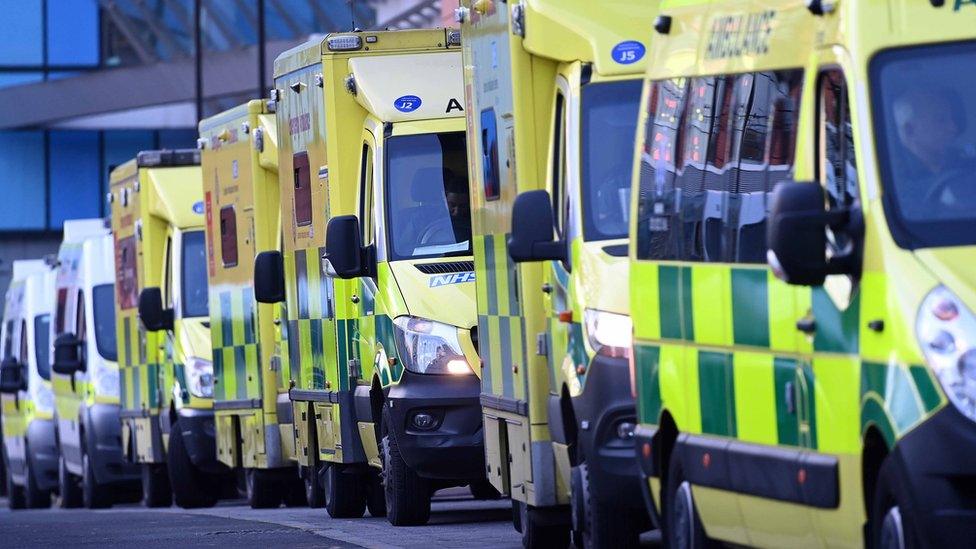
- Published14 January 2023
